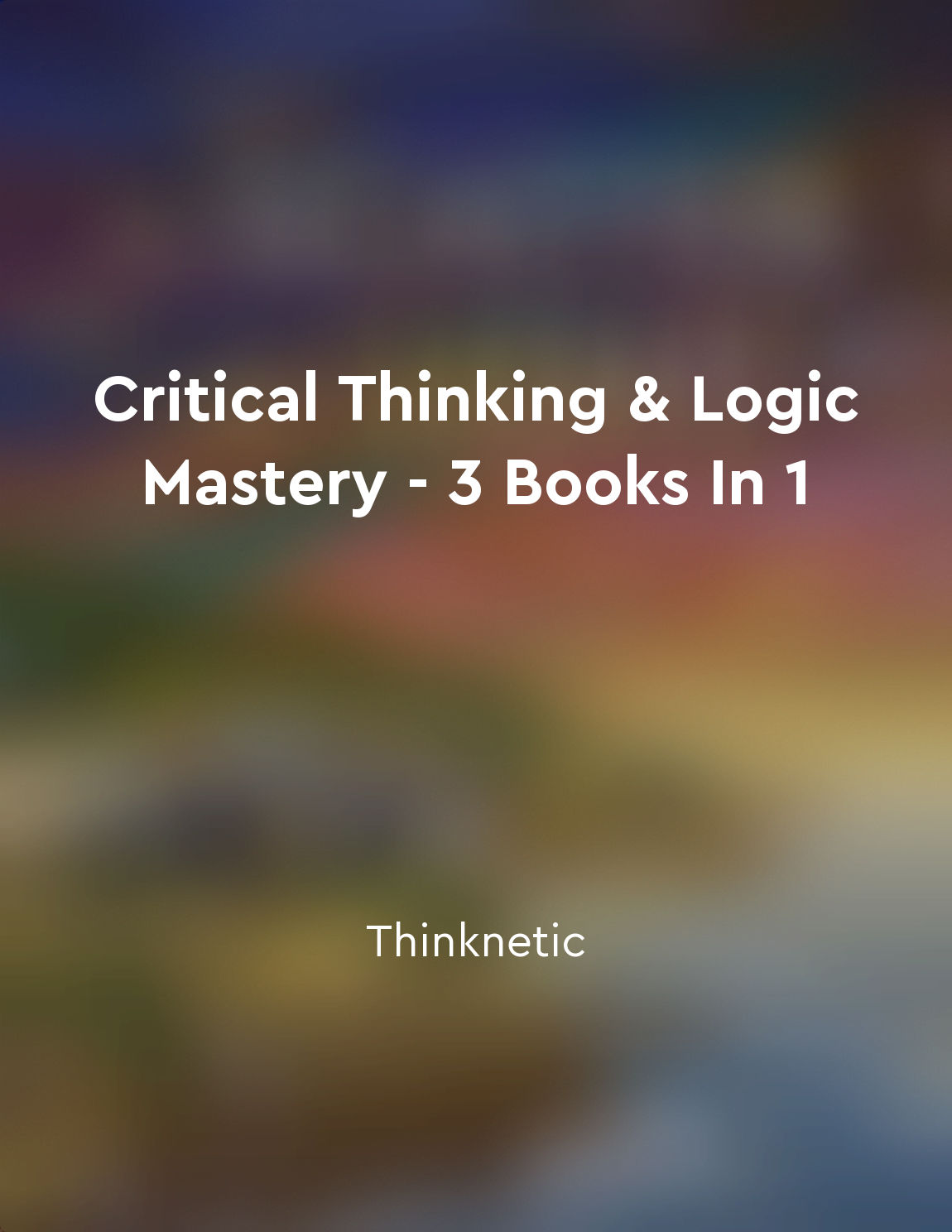Audio available in app
Relying on evidence leads to more sound conclusions from "summary" of Critical Thinking & Logic Mastery - 3 Books In 1 by Thinknetic
When it comes to making conclusions or decisions, it is crucial to rely on evidence rather than on assumptions or emotions. Evidence provides a solid foundation for reasoning and helps to support our conclusions in a logical manner. By examining and analyzing evidence, we can arrive at more sound and well-founded conclusions, rather than relying on guesswork or personal biases. Evidence can come in many forms, such as data, facts, research studies, expert opinions, or even personal observations. It is important to evaluate the quality and reliability of the evidence we are using to support our conclusions. Strong, credible evidence will lead to stronger conclusions, while weak or unreliable evidence can lead to faulty reasoning and inaccurate conclusions. By basing our conclusions on evidence, we can also avoid common pitfalls such as logical fallacies or cognitive biases. These errors in reasoning can lead us astray and result in flawed conclusions. By using evidence as a guide, we can navigate through these pitfalls and arrive at more logical and rational conclusions. Furthermore, relying on evidence helps to promote critical thinking skills. Critical thinking involves evaluating information, analyzing arguments, and making informed decisions based on evidence. By practicing critical thinking and relying on evidence, we can sharpen our reasoning skills and make more informed choices in various aspects of our lives.- Evidence serves as the cornerstone of sound reasoning and logical conclusions. By examining and analyzing evidence, we can support our conclusions in a rational and well-founded manner. This approach not only leads to more sound conclusions but also helps to develop our critical thinking skills and avoid common pitfalls in reasoning.


